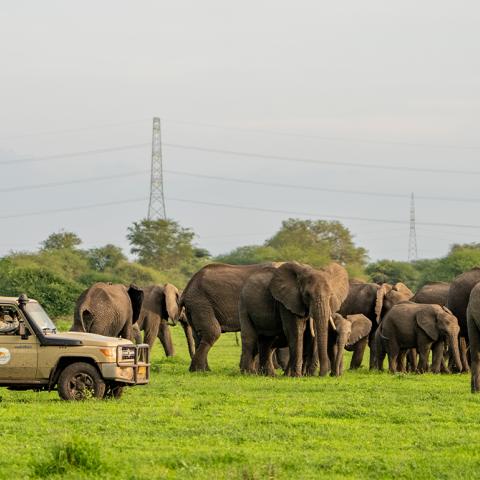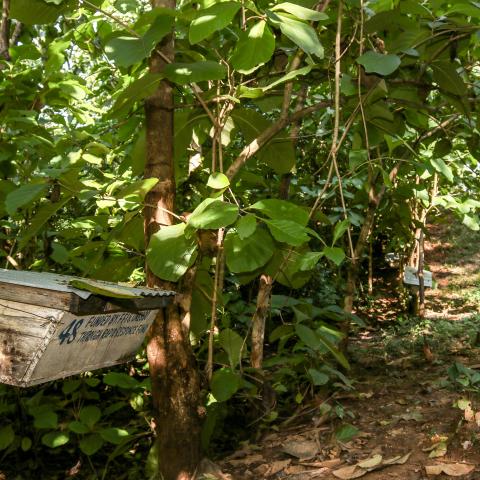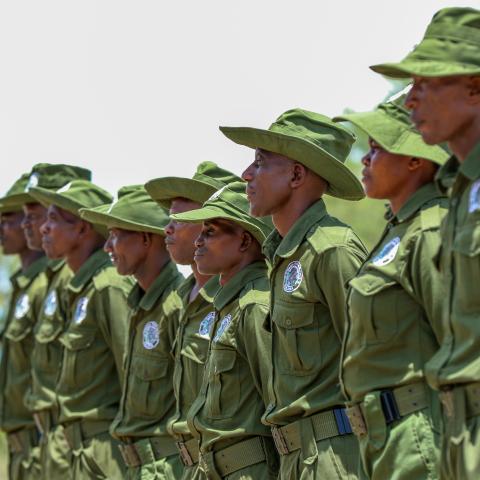Restoring Ecosystems & Managing Landscapes
To stop and reverse habitat loss, we work with protected-area authorities to strengthen their management of protected areas by equipping them with equipment, tools, and training in best practices. We also help to establish and support the management of community conservancies and community forests. Many of these community conservation areas protect wildlife corridors—natural areas that allow wildlife to travel from one habitat to another—which are crucial for seasonal wildlife movement or adapting to the effects of climate change. Creating these areas involves participatory, inclusive land-use planning, robust local governance, and sustainable and prosperous community livelihoods strategies. The end results are intact ecosystems that can provide essential ecosystem services and are more resilient to climate change.

Easing Human-Wildlife Conflict

Collaborating on Anti-Poaching
To support governments in combating transboundary poaching, we have facilitated cross-border coordination among anti-poaching forces. Ranger teams from Tanzania and Kenya participate in concurrent patrols guided by intelligence information. With more robust sharing of information and tactics, forces are more effective at targeting and deterring illegal activity. In 2022, we opened a canine facility in Mkomazi National Park, where we have established a tracker-dog unit that investigates and deters poaching.

Pagination
- Page 1
- Next page